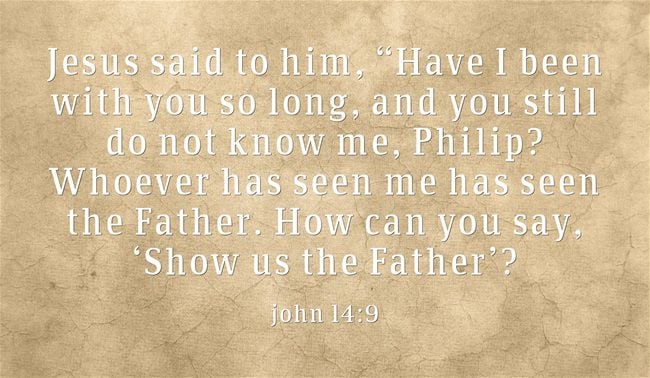Does the movie and the book, The Shack, give us a distorted view of God?
The Shack
The Shack, by William P. Young (2008) has been called heretical and unbiblical, as far as what God is like and the attributes of the Three Persons of the Trinity, even though the book is primarily about how to deal with suffering, however, those who defend the book say it’s not intended as a theological study of the triune nature of God, rather it’s a look at how we deal with suffering and process our thoughts about God. In the book, and now the movie, the main character, Mack, grieves over the loss of his daughter Missy during a mishap on a lake. Mack blames himself for the rape and murder of his youngest daughter due to his inattentiveness during the lake accident, so The Shack addresses specific issues over the grieving process that humans endure when they face tragedies like the loss of a loved one, and particularly when losing one’s own child. At first, Mack is angry that God has allowed this to happen and He wonders why God allows such suffering in the world, so the author is obviously trying to show how such a difficult loss of such magnitude is experienced. It is what Mack calls the “Great Sadness.” To lose perhaps his most prized earthly treasure, the youngest of his three children, was more than he could bear, and as a result, Mack becomes angry at God and has lost his sense of trust in Him.
Review of the Book
In Roger E. Olson’s Finding God in the Shack (2009), he asks, are “we are supposed to believe that God really appeared to Mack as a Trinity of the Three distinct personages of God” (Olson, 12)? In the book, Mack begins to question God, and since God is sovereign and knows the future, was part of His plan the taking a young child’s life? In His sovereignty, does God help us endure such great loss and suffering? Part of what God is doing is “to change our image of God” (Olson, 34), but Mack seems to be saying that God is submitted to us and not that we must submit to Him and trust Him with our lives since He knows the end from the beginning (Olson, p 47), but it’s as if Mack is putting God on trial for crimes against humanity, but God points the finger right back at us because humans own responsibility for going their own way (Olson, 59). What is deeply troubling is Mack seems to indicate God has already forgiven Missy’s murderer, called Lady Killer, even if the murderer has not asked for forgiveness (Olson, 72), and then Mack “…implies that God doesn’t consign anyone to hell” (Olson, 77), instead, the author would have God still pursuing people in hell and hoping they’ll repent since God never abandons the sinner, even in hell (Olson, 78). To me, this is not only inaccurate, but it’s dangerous, but that’s why it’s fiction, and even since it’s fiction, when relating about the things of God, we can easily misconstrue it for biblical teaching, especially for newer believers. I do agree that “Sin is humanities declaration of independence from God” (Olson, 82), but Roger Olson still sees this book as “blatantly heretical” (Olson, 144), and even though it’s not designed to be systematic theology, it still sounds very much like theology (Olson, 147). In defense of the book, Young explains that he is only a Christian father trying to help his children understand his relationship with God.
Finding God in a Shack?
Can we really find God in a shack…or any place else? No, it is God Who sought us rather than us seeking God, and by the way, God is not in a shack because the heavens themselves cannot contain Him (2nd Sam 7:5). The Apostle Paul makes it crystal clear that “All have turned aside; together they have become worthless; no one does good, not even one” (Rom 3:12), so that narrows it down to zero the number of “good people” and “seekers” of God. Personally, I cannot recommend this book unless someone has a firm, theological understanding of biblical doctrine. I wished the book would have included a proper understanding of Who God is and His redemptive plan for mankind. I believe it’s a bad choice for new believers for the reason simple reason that the author’s portrayal of God is confusing at best, and untrue at worst, so having an engaging story is not enough, particularly when it’s about God. It should have at least some accuracy to it and not play loose and fast with the biblical facts. Mack’s first encounter with God was at the front door of the shack as he met “Papa,” which is his wife’s favorite name for God, and appears as a “large beaming African-American woman,” who is supposed to be the Father, and then meets a “small, distinctively Asian woman,” named Sarayu, and a Middle Eastern laborer, who is obviously Jesus (Young, 83). Mack’s conclusion is that “this was a Trinity sort of thing” (Young, 87), but was it? Is the Trinity like this? This is a human view of God that it is fraught with error because his view of Christ confuses the natures and undermines the uniqueness of the hypostatic union. In one conversation between Mack and Papa, Mack explains his belief that the miracles of Jesus are evidence of His deity. Papa corrects him by saying, “No, it proves that Jesus is truly human,” and continues, “Jesus is fully human and He has only lived out of his relationship with me, living in the very same manner that I desire to be in relationship with every human being. He is just the first to do it to the uttermost—the first to absolutely trust my life within him, the first to believe in my love and my goodness without regard for appearance or consequence” (Young, 99 – 100), however if Christ gave up His deity when He became human, and if He did not retain full deity on earth, He is not fully divine! Also, God cannot learn anything at any time since He is omniscient, and since Jesus is God, He had no need to learn to “believe in my love and goodness.” He was the Word of God and the Word was with God before time existed (John 1:1-2), so to insinuate He learned anything is to bring Jesus down to our human level.
Conclusion
Even though The Shack is fiction, I believe it is dangerous, particularly for new Christians, because they don’t have enough knowledge of the Bible and of God, and so they might confuse these fictional characters with the way God really is. There is the risk they might begin to believe Young’s description of God and the Trinity. It appears that the author of The Shack is simply following the culture by creating their own image of God to match their own likenesses, and reshaping Him into their own image from their own imaginations, like the serpent said, “Did God really say?” (Gen 3:1). In the author’s fictional view, Jesus’ sacrifice allows Christians and non-Christians to spend eternity with God, in what is deemed, Universal Reconciliation. In other words, everybody goes to heaven, not just followers of Jesus, and some in this camp even include the devil and his demons. If you do choose to see The Shack, you might do well to examine your own beliefs from the Bible about repentance, sin, the Trinity, and communication with the dead (which is also troubling about this book and movie). I don’t need another fictional book to tell me what God is like. We have the best source on earth for that and its call the Bible. We don’t have to guess about the nature of God or His attributes, because we can know. Jesus says if you have seen Him, you have seen the Father (John 14:9), and by the way, the Father is not an African American woman and the Holy Spirit is not a mysterious Asian woman named Sarayu.
Article by Jack Wellman
Jack Wellman is Pastor of the Mulvane Brethren Church in Mulvane Kansas. Jack is also the Senior Writer at What Christians Want To Know whose mission is to equip, encourage, and energize Christians and to address questions about the believer’s daily walk with God and the Bible. You can follow Jack on Google Plus or check out his book Teaching Children the Gospel available on Amazon.
Young, William P. The Shack. Copyright 2008. Windblown Media, Newbury Park, CA.
Olson, Roger E. Finding God In The Shack. Copyright, 2009. Intervarsity Press, Downers Grove, IL.












